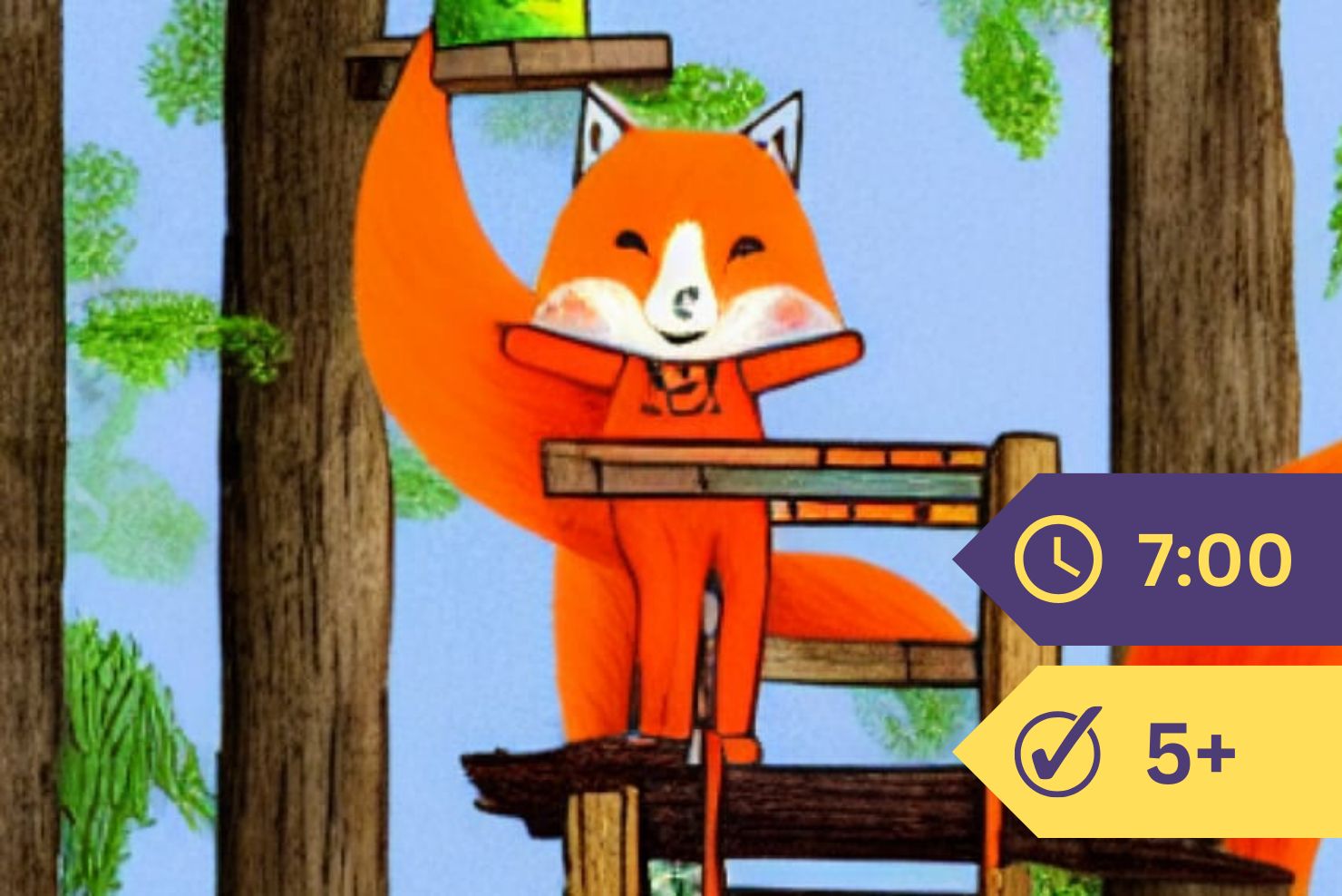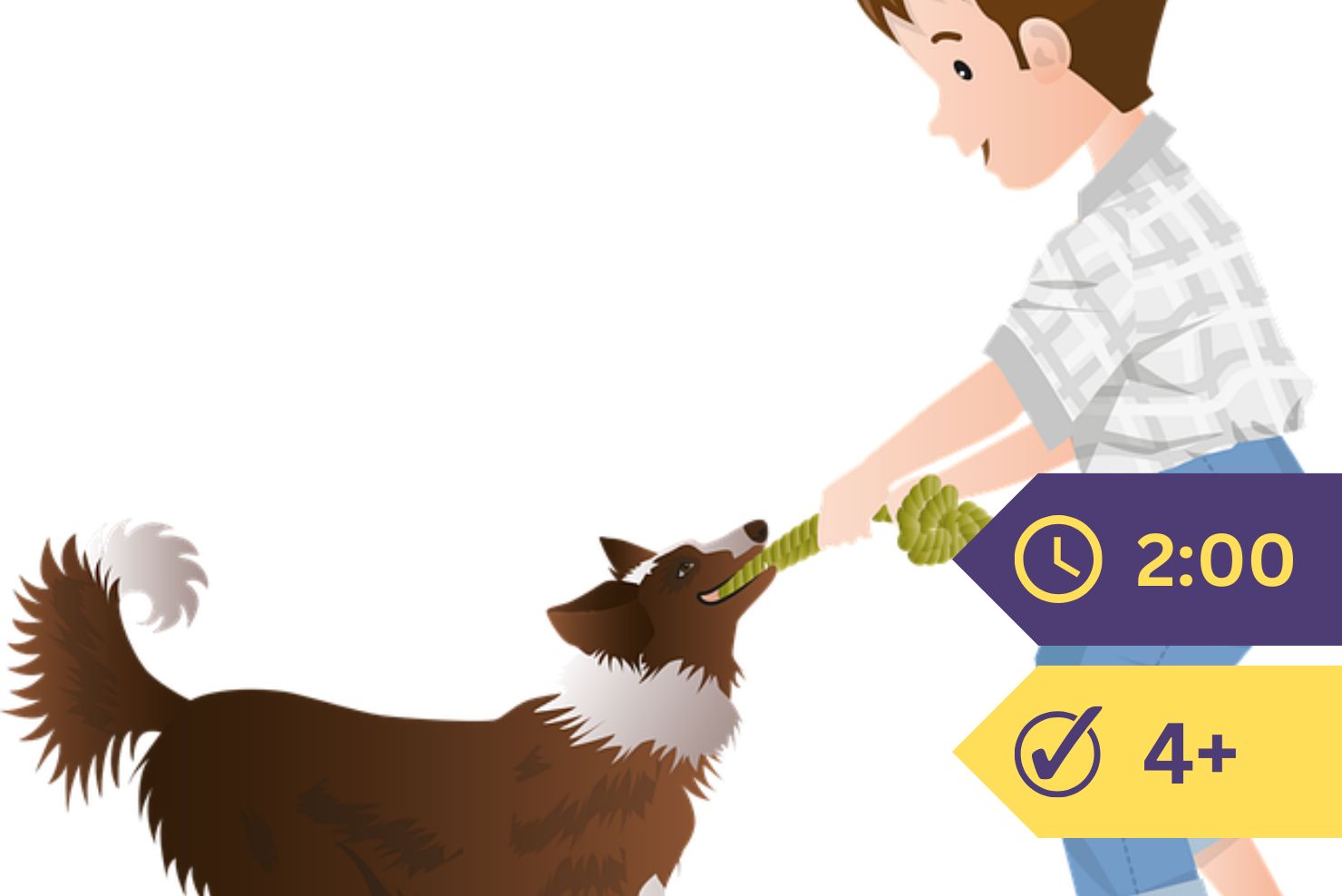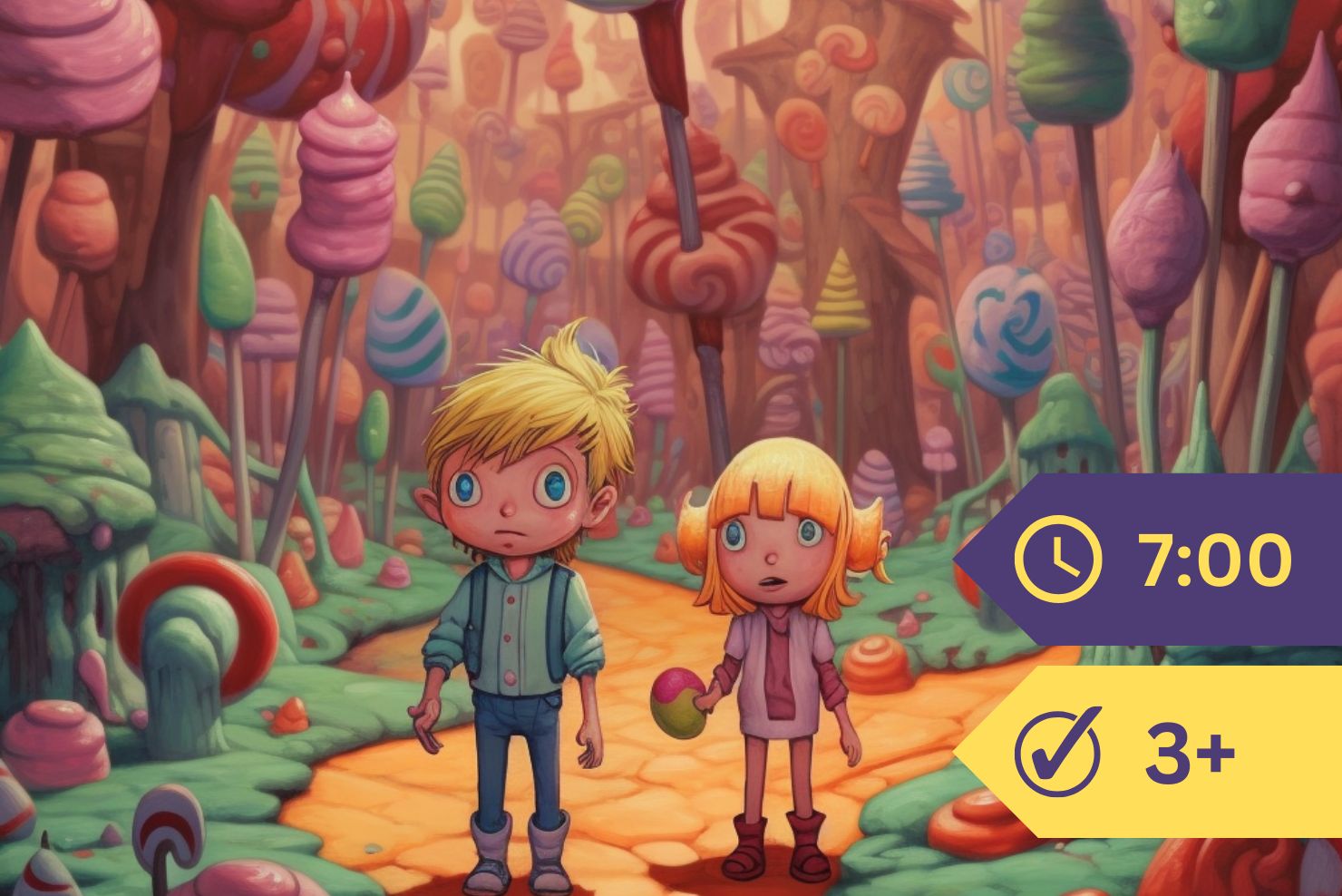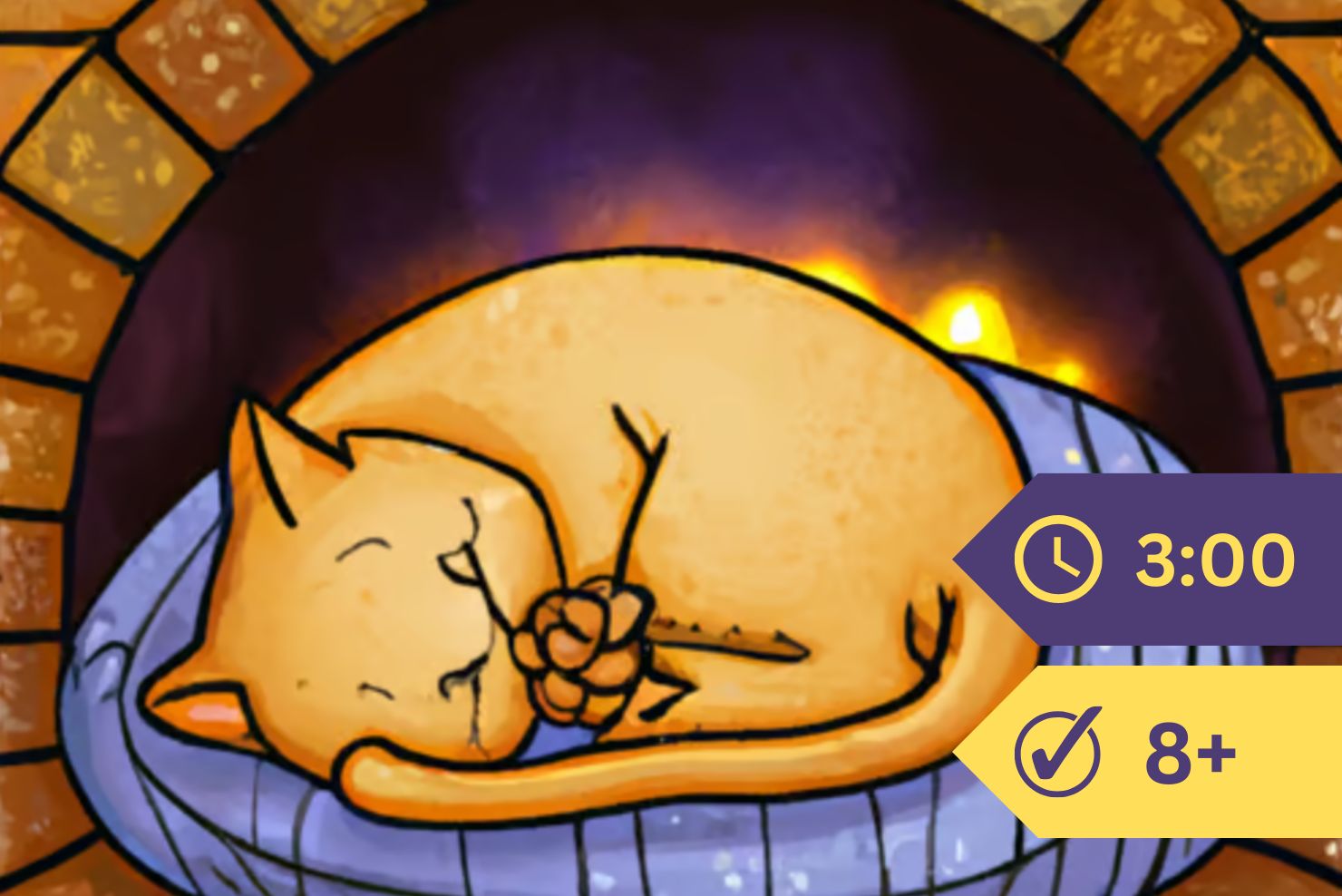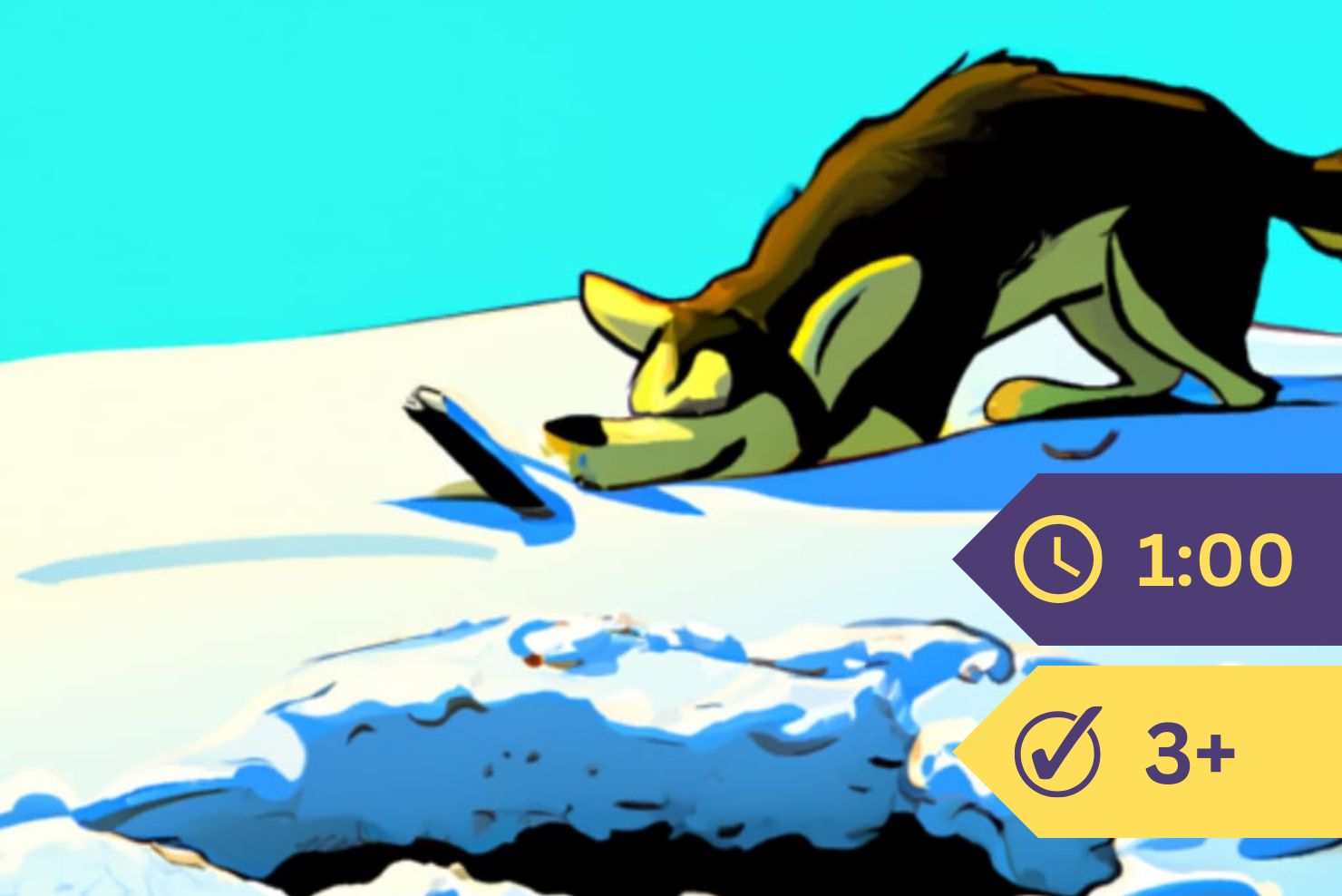Although “Lafayette” may seem like a big name for a dog, I am here to tell you about a French poodle named Lafayette, or Fay for short. One day, Fay was lounging on a blue silk cushion in a window seat that overlooked the yard. Upon hearing a bark outside, he lifted himself up and peered out the window.
It was a yellow, shaggy dog chasing a cat that caught Fay’s attention. Initially, Fay wrinkled his nose at the sight of the common-looking dog, ready to resume his lounging. But something compelled him to watch what was about to unfold.
The yellow dog barked and leaped at the big cat perched atop a fence, its back hunched and tail bristling with anger. Try as he might, the dog couldn’t get the cat to budge. Suddenly, Fay heard a loud bark and, to his surprise, his own nose collided with the windowpane. It was he who had barked this time, overcome with excitement. Fay was convinced that if the dog outside jumped a little higher, the cat would surely flee.
A maid hurried to Fay’s side, eager to investigate the commotion. “Oh, Fay, you mustn’t bark at that horrid cat and that dirty-looking dog,” she scolded, patting him and readjusting the silken cushion for him to relax on once again.
With a sigh, Fay lay back down. Something had changed within him. He felt an inexplicable desire to go out and chase that cat. He was certain he could also scare away the dog since it was, after all, his own yard.
Fay began to ponder. “Lafayette,” he murmured. “What a name to give a dog! Why couldn’t they call me Ned, or Ted, or even Bill? And my coat, it’s absolutely dreadful – all curly, long, and white. I wish something would happen to turn it black. Whenever I go to the park, all the other dogs snicker at me. I used to believe they were envious of my handsome appearance, but now I realize they were simply mocking me. I can’t bear it for another day!” Fay growled in frustration.
“What on earth is the matter with you this morning?” exclaimed the maid, rushing back to Fay. “I’ve never heard you bark and growl like this before.”
Fay merely blinked his eyes, but his tail wagged in a way that conveyed he would show the maid just how he felt during their morning walk. Eventually, the maid returned, dressed for their outing. She adorned Fay’s collar with a pink bow and attached a leash.
Fay hopped off the window seat and followed her with a forlorn expression. That morning, he didn’t hold his head high or strut as he usually did. He felt a newfound sense of shame about his appearance. When they arrived at the park, two stray dogs emerged from the bushes, barking and growling at Fay. It was the last straw. His fighting spirit ignited, and with the maid distracted, Fay easily yanked the leash from her grasp and sprinted away. Although the leash hindered him, Fay made quick work of the surprised stray dogs, causing them to tuck their tails and flee. “What fun!” thought Fay. “I’m running away, where the maid will never find me. Oh, how I wish I could find a cat!”
With leaps and bounds, Fay dashed across the grass, quickly disappearing from the sight of the maid and the pursuing policeman. In a cross street, a newsboy attempted to restrain Fay to read the name on his handsome collar, but Fay managed to slip out of it and finally found himself free.
The frightened newsboy handed the collar to the policeman who witnessed his futile chase. They believed a generous reward awaited whoever could bring Fay back. However, returning was the last thing on Fay’s mind. What he truly desired at that moment was to find a cat.

Fay continued running, leaving behind the neighborhood he had called home for so long. The streets grew muddy, and once he felt he had distanced himself from the maid, Fay joyously rolled over and over in the gutter. He was unrecognizable, far from the spotless and dainty dog that set out that morning.
Emerging from the gutter, Fay paused for a moment to survey his surroundings. Well, he didn’t truly stand still; he pranced and sniffed, contemplating which way to go. Suddenly, another dog approached.
“Hello,” greeted Fay. “Isn’t this a wonderful world?”
“I don’t know, is it?” the other dog responded.
“Why, certainly,” replied Fay. “This morning, I was on the other side of the world, and now I’ve run away and come here. So, it’s not only great, but a splendid world, too, as I’ve discovered.”
“I’m not so sure about that,” pondered the unfamiliar dog. “Sometimes it feels pretty rough, especially when I can’t find a bone.”
“What’s a bone?” inquired Fay, who had only been fed cooked meats and chicken scraps during his life.
“Don’t you know what a bone is?” the strange dog asked, eyeing Fay with surprise. “Do you not have teeth?”
“Of course I do,” Fay responded, showing his sharp teeth. “But what is a bone?”
“I suppose you’ve never lived around here,” the other dog remarked. “Bones are scarce, but we occasionally find one. You see, bones are for eating.”
Fay peered through the hole in the fence, spotting the pile of bones, but they failed to excite him in the slightest. “What are they for?” he asked.
“To eat, of course,” the other dog explained, eagerly observing the bones through the hole. “They may not look appealing to you, but if you like them, why don’t you take one?”
“I mentioned earlier that the dog who owns them is a fighter,” replied the strange dog.
“Are you afraid of him?” Fay inquired.
“I certainly don’t want him to catch me,” confessed the other dog.
“Pshaw,” scoffed Fay. “I’m not afraid. I’ll fetch you a bone. Just wait here.”
“Be careful,” cautioned the strange dog. “When he hears you, he’ll come charging out of that house, and he’s bigger than you.”
Size didn’t matter to Fay; he considered himself rather substantial. He was taller than most dogs he had encountered. Thus, he squeezed through the hole in the fence and swiftly made his way to the bone pile.
With a growl and a bark, the owner of the bones emerged. Fay stood his ground, staring back at the large dog. “Get out of here,” the dog threatened. “I’ll fight you if you don’t.”
“Where did you get all those bones?” Fay asked boldly. “I’m convinced you stole them, and I’m going to take one for a friend of mine,” not that this was just the right way to look at it, but it is the way dogs reason sometimes. The Dog was surprised that Fay did not run as all the other dogs did. He was not quite sure how to act, but when Fay picked up a bone, it was too much for him to see without trying at least to stop him. He jumped at Fay, grabbing him by the leg, but no sooner had he done so than Fay dropped the bone and turned on him, and for a minute dogs seemed to be everywhere. And then, with a loud yelp, the other dog fled, leaving Fay alone with the pile of bones.
Fay shook himself and looked at the hole in the fence. “Come in and help yourself,” he said to the strange dog on the other side. “You can have all you want now. He won’t come back.”
“I didn’t think you had it in you,” said the strange dog, crawling through without a second invitation. “What’s your name?”
This was the first time Fay had felt anything but pleasure, but now he looked crestfallen—he just couldn’t tell the strange dog his awful name.
“I say, what is your name?” asked the dog again, as he gnawed at a big bone. “My name is Bill,” replied Fay, who had to think quickly. “What is yours?”
“Tige,” replied the dog. “I hate it and wish it was Napoleon or something fine-sounding.”
“I think Tige is a nice name,” said Fay, “better than Bill, even, and I like mine pretty well.”
“Yes, that is all right, but some of those dogs that live up among the rich folks have fine-sounding names. I meet one in the park sometimes. He is white and a maid is always with him, and sometimes he wears a pink bow or a blue one on his silver collar. I think his name is Fay or something like that. My, he is a handsome fellow!” said Tige, still gnawing at the bones.
“I don’t believe he is as happy as you—I mean we are,” said Fay, glad he was rid of the bow and collar.
“Huh,” said Tige, “I’ll bet he is happier than we ever thought of being. Why, Bill, my boy, those dogs up among the rich folks have their food brought to them on a silver plate, I have heard, and all cut up ready to eat, and I have heard it said they sleep on a cushion, too.”
“What do you sleep on?” asked Fay, before he thought what he was asking. “On the ground most of the time. Don’t you?” replied Tige.
“Oh, yes, of course,” said Fay. “I thought you might sleep on a rug, though.”
“Do I look it?” asked Tige. “I never slept on anything soft in my life.”
“But why don’t you try one of these bones, Bill? This is your party, and you have not tasted a bone yet.”
“I was watching you eat,” said Fay, “but I will take one. I never ate one before.”
“My, I didn’t think any dog could be poorer than I am,” said Tige. “But you must be if you have never eaten a bone.”
The bone tasted much better than Fay expected, and soon he was gnawing away as happily as Tige.
“Is that your dog?” asked a voice.
Fay dropped his bone and looked around, and there stood the maid and the park policeman and another policeman.
The maid looked at Fay and then she said, “Fay, is that you, you bad doggie?”
Fay made a dash for the hole in the fence, but this time the park policeman was too quick for him.
“Of course, that is your dog, Maggie,” he said. “He looks like a scrapper, though; not much like the white fluffy bunch with a pink bow you lead around the park mornings.”
“Oh, dear, what will the mistress do?” said Maggie when she saw him. “And his fine silver collar gone, too.”
“Oh, I know where that is,” said the other policeman. “A friend of mine has it, but that dog is no pet; he is a scrapper. You should have seen him whip a big dog that had all those bones.”
“Oh, what will the mistress say to her pet dog fighting?” cried Maggie. “Come here, you bad Fay, and go home with me this minute, and I’ll give you such a scrubbing.”
Fay wriggled and squirmed, but a cord was tied about his neck, and he was being led away when he thought of Tige. He hardly dared look goodbye for fear he would not look at him.
Tige, however, was only waiting for that look, and as soon as Fay turned, Tige bounded beside him and licked his nose.
“Go away, you dirty dog!” said Maggie.
The policeman laughed. “Your pretty white poodle isn’t very clean-looking,” he said.
But it was no use. Fay would not go peaceably without Tige, and Tige would not be driven away, either, so off went Maggie leading Fay, and Tige trotted along beside him.
It would be too long a story to tell you all about it, but Tige hung around Fay’s house after he was pulled in by the butler, and Fay sat in the window and howled at Tige until Fay’s mistress was obliged to give in and have Tige brought inside.
He was given a bath, and a new collar was put on his neck, and Fay and Tige sat in the window on rainy days when the maid could not take them in the park, and looked out in the yard for cats on the fence, but as cats are not fond of wet weather, Tige had to tell Fay all he knew about them.
“And to think I never got a chance to chase one,” said Fay. “Perhaps someday we can run away again, and then you can show me where to find one.”
“No,” said Tige, shaking his head, “there isn’t going to be any ‘someday,’ Bill, my boy. I shall take no chances on losing this nice home, and you and I will trot right along beside Maggie every day in the park. I know what it means to be without a home, and you do not, so you listen to my cat stories and think about chasing them all you like, but let it end there.”
And Fay, being a sensible dog and very fond of his newfound friend, did as he said.
I must tell you one thing more: Although to each they were Bill and Tige, to everybody else, they were Fay and Caesar, so Tige got his fine-sounding name at last.


